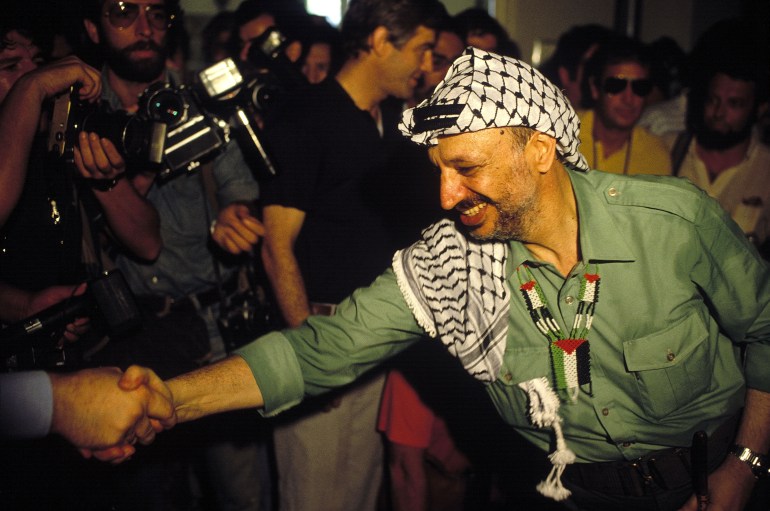A drone strike on the southern Beirut neighbourhood of Dahiyeh this week killed several Hamas leaders including Saleh al-Arouri, the deputy leader of the group’s political wing and founder of the military wing, Qassam Brigades. The move represents a major regional escalation in Israel’s war on Gaza, which has killed more than 22,000 people there so far. But this was not the first time that Israel has carried out an assassination within Lebanon.
Al-Arouri had been living in exile in Lebanon since 2015. Israel has not taken responsibility for the killings, but it is considered highly likely that Tel Aviv ordered the assassination.
For decades, Israel has targeted Palestinian leaders in Lebanon, a stronghold of the Hamas ally, Hezbollah. However, al-Arouri’s death comes after an 18-year pause in a long list of attempted and successful political assassinations.
Here are some of the key cases.
1972 – Aftermath of Lod Airport Killings
One of Israel’s first targets in Lebanon was Ghassan Kanafani, a prominent Palestinian author and poet who was assassinated on July 8, 1972 in Beirut along with his 17-year-old niece. A grenade had been connected to the ignition switch of his car. When he started the car, this ignited a plastic bomb that had been planted behind the car’s bumper.
Kanafani was a spokesperson for the Popular Front for the Liberation of Palestine (PFLP). His assassination came in the aftermath of the May 30, 1972 Lod Airport (now Ben Gurion International Airport) mass shooting in which 26 people were killed and scores of others were injured. Three members of the Japanese Red Army had been recruited to carry out the shootings as the airport was already on high alert for possible attacks by Palestinians. Israel said Kanafani’s killing was in response to this attack, but it is thought the assassination was already being planned well before that.
Bassam Abu Sharif, who became spokesperson for PFLP after Kanafani’s murder, was also targeted with a parcel bomb in Beirut on July 25, 1972. Abu Sharif survived the attempt but suffered severe injuries – he partially lost his sight and hearing, as well as four fingers.

1973 – Response to Munich kidnappings
On September 5, 1972, members of Black September, a faction of the Palestine Liberation Organization (PLO), kidnapped 11 Israeli athletes at the Summer Olympics in Munich. The hostages were eventually killed in a botched rescue attempt by West German authorities.
In response, Israel launched an assassination campaign called Operation Spring of Youth, to target the masterminds of the kidnapping. Travelling by boat from Haifa for an operation that would last from April 10 to 11, 1973, Israeli special forces landed on the beach in Beirut with their commander, the future prime minister, Ehud Barak, disguised as a woman.
They raided a high-rise building and private homes of PLO officials in Beirut and Sidon which they had previously had under surveillance, blowing open the doors with explosives and spraying gunfire until their targets were dead. Three top PLO officials were killed: Muhammad Youssef al-Najjar, a deputy to PLO leader Yasser Arafat; spokesperson Kamal Nasser; and Kamal Adwan, military leader for the West Bank.
1973 – 2001 – A long plot to kill Yasser Arafat
On October 1, 1973, Israel tried to assassinate Arafat, as well as PLO members Khalil al-Wazir, Faruq al-Qaddumi, Hani al-Hassan and Wadi Haddad during a meeting in Beirut. Bombs dropped on the building where the men were meeting failed to detonate, however.
Plans to assassinate Arafat continued for years. Israeli intelligence mapped out several plans to shoot down commercial planes that might carry Arafat, but concerns about the possible political fallout from killing civilians in the attempt hindered those efforts.
Several attempts to eliminate Arafat were launched between June and August 1982. Salt Fish, an Israeli task force created for that sole purpose, launched several bombing attacks on possible locations of Arafat, but none were successful in killing him.
In 2001, Israel’s prime minister, Ariel Sharon, who regarded Arafat as a “murderer of Jews”, is understood to have finally decided to stop trying to assassinate him.

1979 – Another response to Munich kidnappings
On January 22, 1979, Mossad agents executed an elaborate plot to assassinate Ali Hassan Salameh, 37, a top PLO member believed to be the architect of the Munich kidnappings. Spies had enrolled at his gym to befriend him weeks before and a British-Israeli agent rented an apartment close to Salameh’s home to monitor his movements. Salameh was killed when his car passed by a mined Volkswagen that was remotely detonated.
1988 – Attempt to kill Ahmad Jibril
On December 9, 1988, Israel raided Palestinian bases in southern Lebanon, targeting Ahmad Jibril, then secretary-general of the Popular Front for the Liberation of Palestine General Command (PFLP-GC). Commandos raided locations just outside Beirut, but were met with heavy resistance from Palestinian fighters. Several Palestinian operatives were killed. It was later revealed that Jibril was never in that location.
2006 – Sidon assassination
On May 25, 2006, Mahmoud al-Majzoub, a senior leader of the armed Palestinian group Islamic Jihad and a close Hezbollah ally, was assassinated in the city of Sidon. A car bomb attached to the door of al-Majzoub’s car door exploded when he opened it. Israel denied responsibility for the attack, but both Islamic Jihad and Hezbollah held Tel Aviv responsible. Nidal al-Majzoub, his brother, was also killed.
2024 – The war on Gaza
On January 2, a drone strike in Beirut’s southern suburbs of Dahiyeh left Saleh al-Arouri dead. Six others, including high-ranking Hamas military commanders Samir Findi and Azzam al-Aqraa, were also assassinated. The men were on the second floor of an apartment building.
Israel has not claimed responsibility for the attack, but Lebanon’s caretaker Prime Minister Najib Mikati called the killing an “Israeli crime”. Hezbollah said that the attack on Lebanon’s capital “will not pass without punishment”.







